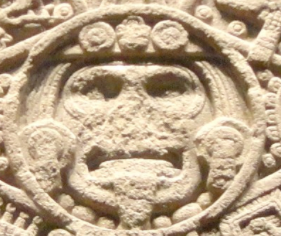If you could, please format it
WORD, DEFINITION
I want to add them to a flashcard deck for myself, I casually collect loanwords and have been getting turned on to trying out csv/flashcards lately haha
Feel free to do the same, if the format is followed you can just copy and paste it to a new line of the csv deck
UBUNTU, from Zulu.
Ubuntu is a concept in Bantu philosophy which is commonly translated as humanity or humaneness, but those are rough and don’t capture the nuance.
In a bunch of SciFi stories, a robot or alien joins a group of humans. The humans are initially wary of the alien/robot, but they spend time together, bond, and realize that they’re not really that different after all. A human says that, while their new friend might not be Homo sapiens, they’re definitely human.
Ubuntu captures that whole concept in one word. It refers to the subtle, ineffable qualities which “make us human”, as exemplified by our social bonds and how we interact with each other.
Kalsarikännit
A Finnish word for getting drunk at home in your underwear with no intention of going out
I feel like only the Finnish really get me
Portuguese:
Cafuné: the act of caressing someone’s hair.
Xodó: a name for one’s favorite someone (like a teacher’s favorite student, a grandma’s favorite grandson…)
Xará: someone who shares the same name as you.
Zeitgeist
Rendezvous
Iceberg
Doch, from German and its main use is expresseing a positive statement in opposition to a prior negative one. For pronunciation, use Wiktionary.
So if you say: “you can’t win the game by cheating” and I say “Doch!” I express “yes I can!”. But neatly in one single word with one syllable, which is why it’s often used by children as single counter to something their parents say.
Ireland has craic (pronounced like crack). It means fun, but less like a child having fun playing, more like an adult enjoying spending time with friends.
Someone can be good craic. They are fun to be around. Having craic is having a good time. “What’s the craic?” Can mean “how are you?”. In this context, it’s more like, asking for a fun story, but it’s usually rhetorical.
I’ve never been Muslim or spoken Arabic, but I’ve adopted inshallah. It means hopefully or with any luck
The English equivalent would be “God willing” and in Dutch, a lovely archaic phrase: “Zo de Heere wil en wij leven”
What’s the literal translation there?
Turns out it’s from an old translation of James 4:15, here formulated as: “[If] so the Lord wills and we live”
It means “if Allah wills it”, so similar to “God willing”.
I cant ever get Michael Scott desecrating that word to mean if his foot ever recovers from its George Foreman Grill degree burns out of my mind whenever I hear godwilling used
Arschubervollmitseifgefuhl, The feeling that you have too many bars of soap up your bum
What does that actually mean, to have too many bars up soap up your ass? Like they’re overly neat freaks?
No, just literally there’s only really room up there for like 5 or 6, then you always get that unmistakable feeling… Don’t worry, you’ll definitely recognise it when you get there, so you can safely just keep going until then.
They are taking the piss, this is not a real word people would say in German.
I know but what is it?
It’s exactly what they described in English. It’s that nonsense just expressed in German and written together because you are allowed to simply combine multiple words into one compound word in German. There is no “real meaning” to it. Or not yet, feel free to start using it and give it any meaning you want. If it catches on, it has a meaning from then on.
I could see this becoming an idiom that means something like “I have too many good things in a bad place”
Like, if you have so much food in the fridge that you can’t eat it before it goes bad. Or you have so many fun projects to get to this weekend that you know you’ll never have the time to finish them all.
相合傘, means two people sharing one umbrella.
相合傘 has a strong romantic implication, stemming in part from a play on words. The first two characters are pronounced あい (ai), the same as the word 愛 (ai, “love”), and thus the connotation is that both people under the umbrella are in love.
Backpfeiffengesicht, a face you want to slap or is for various reasons in need of a slap





